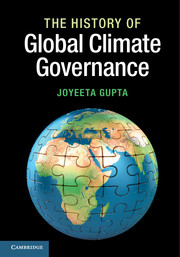Foreword
Published online by Cambridge University Press: 05 February 2014
Summary
The climate change problem is a complex, multi-dimensional, systemic problem with a long temporal dimension. As a post-industrialization challenge, it has a long history; as its impacts will be felt long after the concentration of greenhouse gases have been stabilized, it has a long future. As it challenges our way of life, it is not just a technological problem, it is in essence a political problem. And as it ironically will affect all of us, it also has a way of bringing the whole world together. We are all dependent on each other for addressing the problem.
While in the past, the problem was essentially caused by the industrialized countries, this is now changing. The changing geo-politics of the world has brought new emitters into the picture. The victims of climate change remain the most vulnerable to the impacts of climate change. Although the problem is one that concerns the global commons, the way we share our rights to development with each other will remain the enduring problem, unless we can re-define and decarbonize our development pathways. This latter issue is not just a technological problem, it is deeply political – as it is politics that will create the space for economic investment in innovation by levelling the playing field. But levelling the playing field is not simply a matter of applying the same rules to all, it also means addressing global inequities.
- Type
- Chapter
- Information
- The History of Global Climate Governance , pp. xii - xivPublisher: Cambridge University PressPrint publication year: 2014



